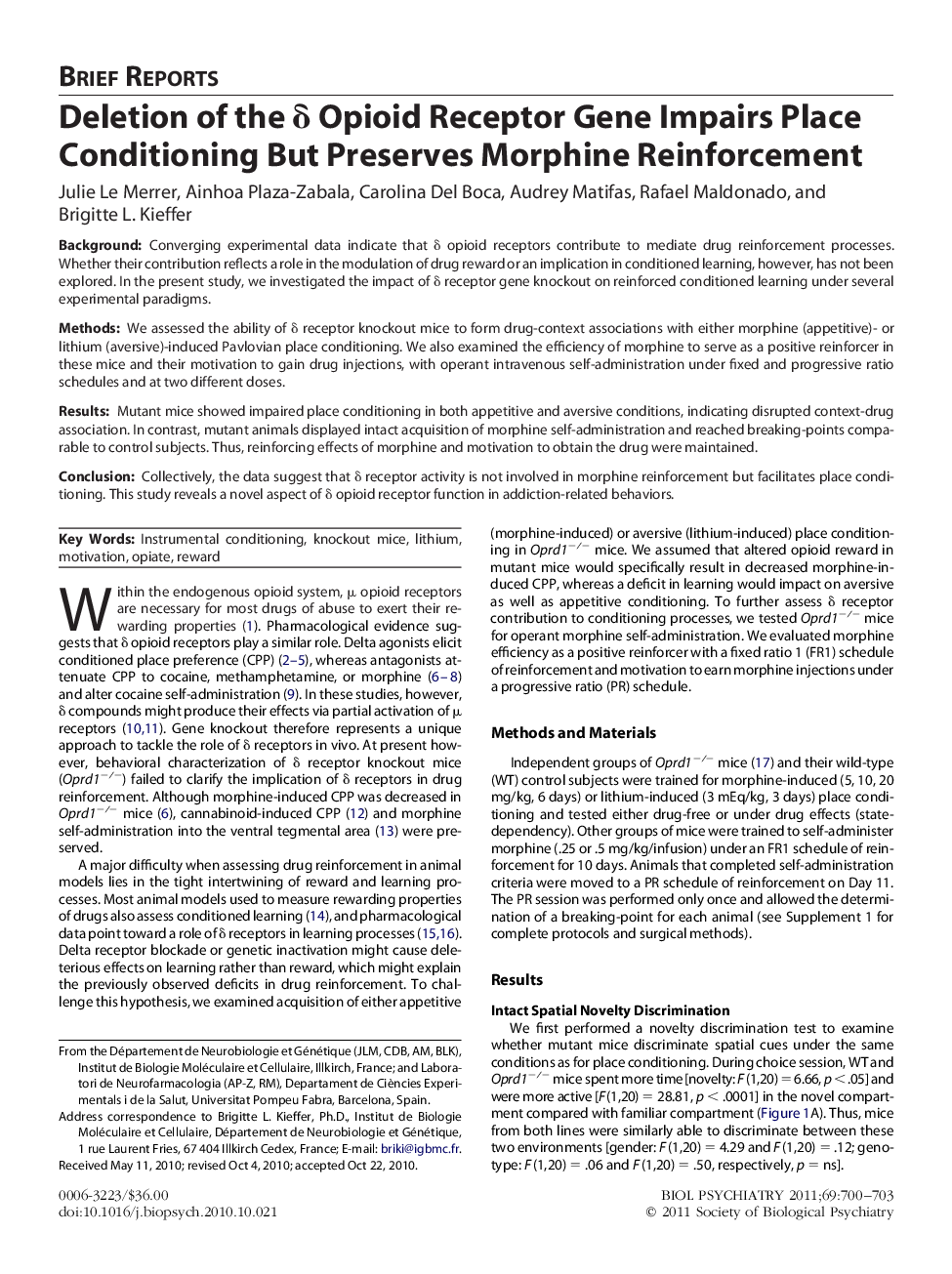| Article ID | Journal | Published Year | Pages | File Type |
|---|---|---|---|---|
| 6228254 | Biological Psychiatry | 2011 | 4 Pages |
BackgroundConverging experimental data indicate that δ opioid receptors contribute to mediate drug reinforcement processes. Whether their contribution reflects a role in the modulation of drug reward or an implication in conditioned learning, however, has not been explored. In the present study, we investigated the impact of δ receptor gene knockout on reinforced conditioned learning under several experimental paradigms.MethodsWe assessed the ability of δ receptor knockout mice to form drug-context associations with either morphine (appetitive)- or lithium (aversive)-induced Pavlovian place conditioning. We also examined the efficiency of morphine to serve as a positive reinforcer in these mice and their motivation to gain drug injections, with operant intravenous self-administration under fixed and progressive ratio schedules and at two different doses.ResultsMutant mice showed impaired place conditioning in both appetitive and aversive conditions, indicating disrupted context-drug association. In contrast, mutant animals displayed intact acquisition of morphine self-administration and reached breaking-points comparable to control subjects. Thus, reinforcing effects of morphine and motivation to obtain the drug were maintained.ConclusionCollectively, the data suggest that δ receptor activity is not involved in morphine reinforcement but facilitates place conditioning. This study reveals a novel aspect of δ opioid receptor function in addiction-related behaviors.
